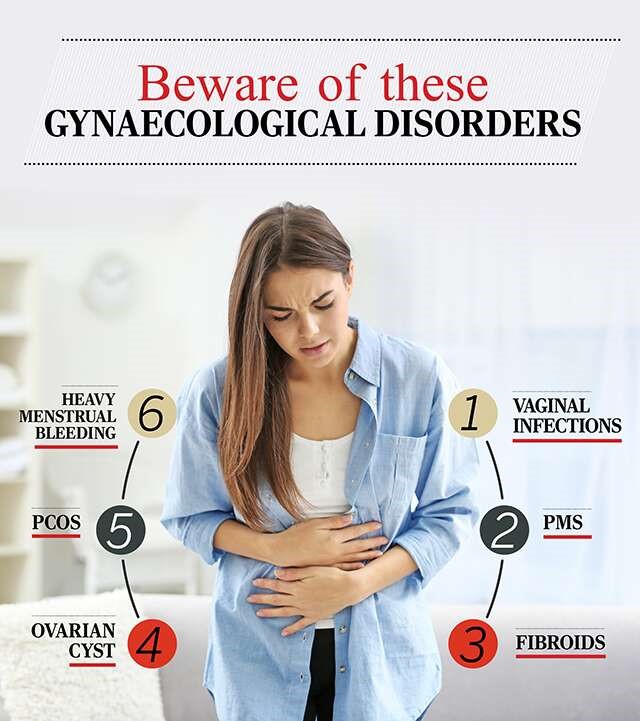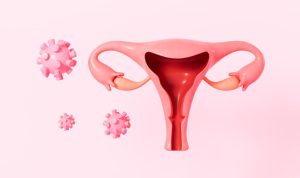Ladies, let’s talk about something that affects us all: our gynecological health!
Whether you’re in your 20s or your 50s, it’s important to be aware of the common gynecological issues that can impact your well-being.
Did you know that certain gynecological problems can cause discomfort, and pain, and even lead to infertility?
In this blog post, we’re breaking down the most common gynecological issues every woman should know about, so you can feel informed, empowered, and take charge of your health.
So, grab a cup of tea, get comfy, and let’s dive in.

What is Gynecology?
So, you’ve heard the word ‘gynecology’ in passing and want to know more. That’s a great attitude to have when it comes to your health—knowledge is power!
Gynecology is an area of medicine that focuses on the female reproductive system. Its specialists, gynecologists, help women manage their reproductive health and diagnose, treat, and monitor conditions related to the system.
Every woman needs to become familiar with these gynecological issues so that they may understand any changes occurring in their body. Here are a few of the most common gynecological issues that you should be aware of:
- Endometriosis: This is a condition where tissue from the lining of the uterus (womb) grows outside of it.
- Ovarian cysts: These are fluid-filled sacs or pockets occurring on an ovary or within its surrounding tissue.
- Vaginal infections: This refers to inflammation or infection of the vagina caused by bacteria or yeast.
- Pelvic inflammatory disease (PID): This is an infection of a woman’s reproductive organs caused by bacteria such as gonorrhea and chlamydia
- Uterine fibroids: These are noncancerous muscle tumors that can develop in a woman’s uterus during her childbearing years
Common Symptoms of Gynecological Issues
Becoming familiar with the symptoms of common issues can help you take proactive steps to maintain your health and catch any condition in its early stages.
Some common warning signs to be aware of include:
- Unusually heavy or painful periods
- Pelvic pain or pressure
- Pain during sexual intercourse
- Vaginal bleeding between periods
- Burning sensations during urination
- Abnormal vaginal discharge
- Lower abdominal pain
- Bloating or swelling of the abdomen
It’s important to note that not all of these symptoms indicate a gynecological condition, but are rather a sign to book an appointment with your gynecologist.
If you experience any discomfort, don’t hesitate to speak with your doctor. They will be able to help you assess what may be going on and ensure that you get the care and relief you need.
Common Types of Gynecological Conditions
When it comes to understanding common gynecological issues, there are a few different categories. While not exhaustive, let’s take a look at some of the most typical ones you’ll come across.
1. Infections
Infections are one of the most common types of gynecological issues. Bacterial vaginosis, yeast infections, human papillomavirus (HPV), and pelvic inflammatory disease (PID) can all be classified as infection-related issues.
These are typically caused by an overgrowth of bacteria or yeast in the vagina and can cause severe symptoms like itching, burning, and a bad odor that won’t go away.
2. Infertility
Another common gynecological issue is infertility. This typically refers to the inability to get pregnant or carry a baby to term despite having regular unprotected sex. Causes can vary greatly due to underlying fertility issues like ovulation problems, blocked fallopian tubes, or problems with your partner’s sperm. In some cases, treatments are available but, while for some women it’s simply not possible.
3. Cancers
Cancers can also occur in the female reproductive system as well as other parts of the body that affect it. This includes cervical cancer, ovarian cancer, and uterine cancer—all serious conditions that must be treated quickly and aggressively for the best results. The good news?
Regular checkups and screenings can help catch any potential issue before it develops into something more serious or life-threatening.
Diagnosis and Treatment for Common Gynecological Issues
It’s important to recognize the symptoms and see a doctor if you experience any of these common gynecological issues so that you can get the right diagnosis and treatment.
Generally speaking, gynecological issues can be treated with medication or other treatments, depending on the symptoms.
Common Gynecological Conditions and Treatment Options
Here’s a look at some common gynecological conditions and treatments available:
1. Urinary Tract Infections (UTIs)
- UTIs are caused by bacteria that enter the urinary tract and bladder, causing pain and discomfort
- Treatment involves antibiotics prescribed by a doctor
2. Endometriosis
- Endometriosis is an often-painful disorder in which tissue similar to the lining of the uterus grows outside of it.
- Treatment includes medications such as pain relievers and hormone therapy, as well as surgery to remove the tissue that is causing the pain
3. Pelvic Inflammatory Disease (PID)
- PID is an infection of a woman’s reproductive organs caused by sexually transmitted infections or other bacteria that enter through the vagina or cervix.
- Treatment involves antibiotics prescribed by a doctor.
No matter which condition you are dealing with, it’s important to speak with your doctor to ensure a correct diagnosis and effective treatment plan is developed for managing your condition(s).
When to See a Doctor for Gynecological Concerns?
If you are experiencing any of the above symptoms, it is important to talk to a doctor right away. A gynecologist specializes in the health of female reproductive organs and can perform a pelvic exam, pap smear, and other tests if necessary. Your gynecologist will be able to diagnose any issues and create a treatment plan for whatever you are dealing with.
There are also times when it is important even when you are feeling healthy to see your gynecologist. It is recommended that women have regular screenings and check-ups at least once a year or based on age.
Your gynecologist can provide valuable advice about preventing diseases, managing common symptoms associated with aging, medication, lifestyle modifications, and birth control as well as providing annual screenings such as pelvic exams and pap smears that help detect signs of cancer early on. They can also recommend the best sanitary pads in Pakistan based on your flow and skin type.
The following points should be discussed with your gynecologist:
- Any abnormal symptoms you may be experiencing
- Questions regarding birth control
- Planning for pregnancy
- Screening for STIs or HPV
- Screening for common diseases like ovarian or breast cancer
- Questions concerning menopause or other issues related to ageing
Women’s health is incredibly important and it’s essential to know the warning signs of common gynecological issues. Knowing the signs of illnesses such as endometriosis, ovarian cancer, and PCOS can help you take the required steps early-on and get the proper treatment that you need.
It’s also important to be aware of the different forms of contraception, hormonal treatments, and lifestyle changes that can help manage common gynecological issues. Women should also be educated on their anatomy and reproductive health to recognize any changes that may occur in their bodies.
Finally, women should not be ashamed to talk about their gynecological-related health issues. Seeking help and advice as soon as possible is key to avoiding long-term health issues. By talking to your healthcare provider, you can work together to identify the best solutions.







